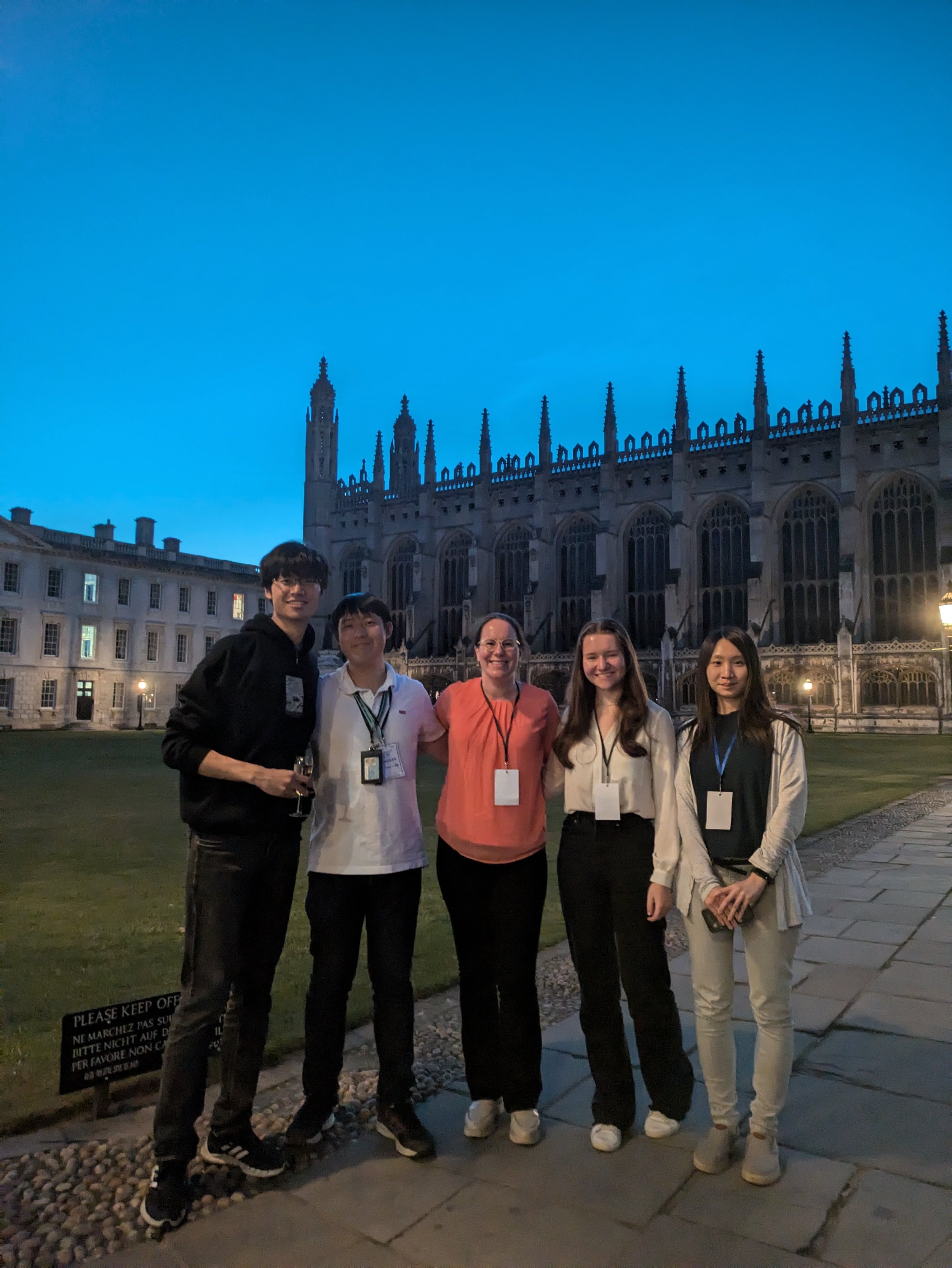‘Hack the Law’ Hackathon Reflection 2024: Enhancing the Mind and Judgement with JudgeMentor
Written by JudgeMentor
Participating in a hackathon is a whirlwind of excitement, learning, and collaboration. As we embarked on this marathon of hacking, we found ourselves surrounded by a diverse group of passionate individuals, all eager to push the boundaries of technology. From the get-go, we made new friends—some of whom were completely new to hackathons—each bringing unique perspectives and clever insights to the table.
One of the most thought-provoking aspects was delving into the world of LLMs. This deep dive was guided by mentors from forward-thinking companies, who were more than willing to share their expertise and vision for transforming the sector.
Throughout the hackathon, we had the unique opportunity to interact with technicians, lawyers and interdisciplinary researchers. These conversations were enlightening, as we tried to understand each other's needs and fears regarding AI. While providing monumental opportunities for growth and enhancement of everyday processes in multiple sectors, AI has also presented areas of grave concern with its impact on the environment and labour markets. AI has also been faced with a grave lack of understanding among those who must reckon with its consequences – including in the legal world. Law is a sector steeped in centuries of custom and a profession that has struggled to deal with the sudden shock to its most sacred practices and principles presented by the rise of AI.
On the technical side, there has been concern about AI regulations and ethics—how can one navigate and develop new models and frameworks while remaining on the right side of the law? How can new AI services be better tailored to the traditionally obtuse and seemingly impenetrable needs of the legal profession? So many exciting projects are being undertaken around the world—both across the tech sector and within the research-focused environment at Stanford Codex, one the main collaborators of the event. It was a crucial exercise to bridge the gap between real-world technological innovation and legal frameworks.
One of the most valuable lessons we learned was the importance of improving our own human skills and judgement with AI as an assistant. The importance of keeping the client or end-user in mind, in both software development and legal services, and tailoring our design toward their needs was strongly impressed upon us.
Amidst this atmosphere of creativity and enthusiasm, we recognised that the field of legal research and training was missing—but could greatly benefit from—a historical understanding of specialised linguistic characterisation of different judges. Thus, we developed our idea to create a scalable machine-learning tool that focuses on overlooked linguistic and conceptual information for analysing different judges’ legal ‘personalities’ and ideological leanings. The goal is not only to help legal practitioners adjust their preparatory work and defence style, but also to help the public as well as legal researchers uncover existing biases which may have bearings on social justice.
The hackathon was as much about personal growth as it was about attempting to create groundbreaking solutions. It taught us to be better communicators, collaborators, and critical thinkers.
A memorable highlight was the evening we spent on the iconic lawns of King's College for the annual Singing on the River by the King's Men. It was a refreshing break from our intense working sessions. The experience was not just about technology; it was about building connections and having fun.
Overall, the hackathon was an unforgettable experience. It challenged us, inspired us, and equipped us with new skills and perspectives. It was a journey of discovery, both in terms of technology and our own capabilities.
JudgeMentor
Anna Hoff is a curious electrical engineer reading part-time applied artificial intelligence and loves Hackathons. As an executive MBA Alumnus from Judge Business School who is driven by using technology for good, she is interested in finding AI related research and potential business ideas which help humans in a clever and sustainable way.
Sarah Hair is a Barrister Training Course candidate at City University of London and Master of Law graduate from Christ’s College Cambridge, with a research focus on the legal implications of algorithmic decision-making and automated smart contracts following Quoine v B2C2. She previously served as Mistress of Moots for two years at Queen’s University Belfast, and coached the university’s intervarsity mooting team.
Tim Liu is a medical student and full-stack engineer at Cambridge, Moorfields, and the Sanger Institute. He is passionate about improving front-end patient care through back-end biomedicine, data science, and technology. He blogs at timingliu.org.
Jun Xiang Wong is an incoming second-year undergraduate law student at Hughes Hall, Cambridge. During his time in Cambridge, he has been an active participant in college and university-level moots. Jun Xiang also holds an interest in the intersections between UK and Singapore law as well as in criminal procedure, and has written an article for the Singapore Comparative Law Review on a new system of indefinite sentencing in Singapore. Outside of his studies, Jun Xiang enjoys jogging, exploring the city, and coxing the Hughes Hall Boat Club.
Shellie Audsley is a PhD candidate in English & Methods Fellow at Cambridge Digital Humanities researching 19th-century genre systems, inference and referentiality. She is also working on a research commercialisation project which utilises specially-extracted book data for the creation of a Book Discovery Platform aimed at promoting a culture of reading. She welcomes potential collaborators to get in touch.

